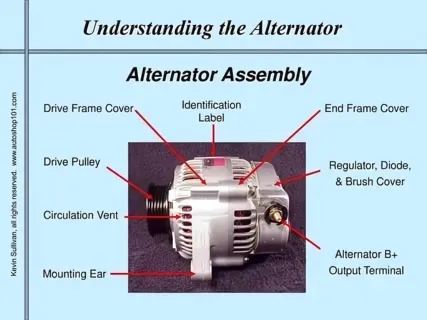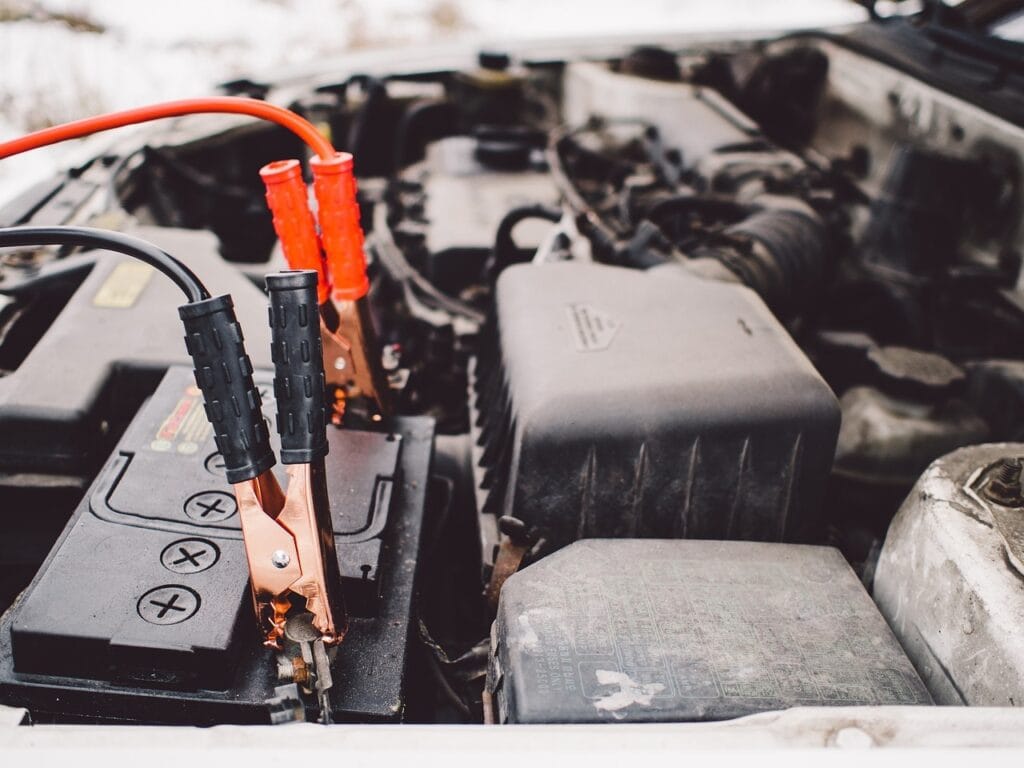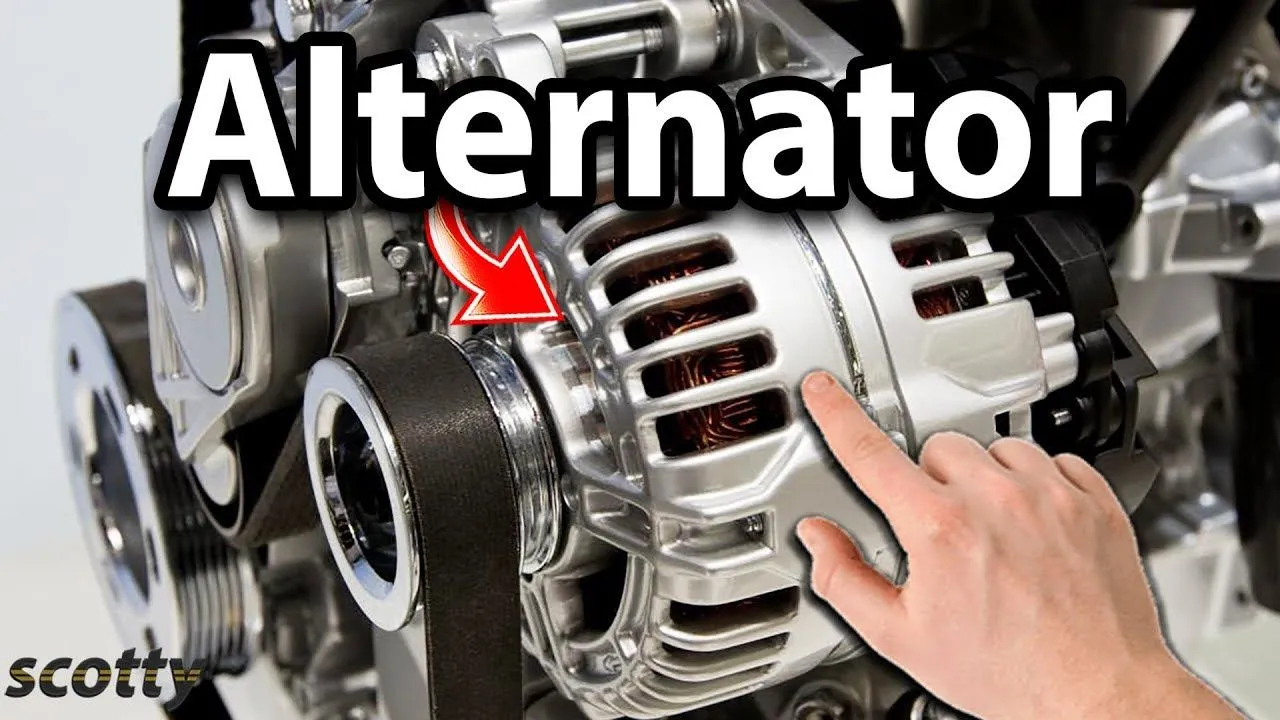The alternator is key to keeping your car running well. It charges the battery and powers electrical systems while the engine’s on. But what if it stops working? Can your car still run without it? And if so, for how long? This guide will explore what happens when alternators fail how long batteries last, and what could go wrong if you drive without this important part.
Table of Contents
Understanding the Alternator’s Function
The car alternator plays a crucial role in your car’s electrical system. It works as a generator that turns mechanical energy from the engine into alternating current electrical energy. This electricity then provides battery charging and powers various electrical parts, like the headlights, radio, and dashboard instruments.

A working alternator keeps the battery charged and provides the electricity needed to run the vehicle’s charging system. But when the alternator breaks down, the battery becomes the only source of direct current electrical power. This can cause potential problems and limitations.
The Battery’s Role in Alternator Failure
Your car’s battery has a main job: to give a small amount of electrical power. It starts the engine and provides power when the alternator isn’t making electricity. If the alternator breaks down, the battery has to work harder and power all the electrical parts in your car.
How long your car can run just on battery power depends on a few things such as:
- Battery Condition: A new or well-maintained battery with a full charge will typically last longer than an older or partially discharged battery.
- Battery Capacity: Batteries come in various sizes and capacities, with larger batteries generally providing more power and lasting longer.
- Electrical Load: The number of electrical components you have running simultaneously will impact how quickly the battery drains. For example, running the headlights, radio, and air conditioning simultaneously will drain the battery faster than if you only have the essential systems running.
Estimating Battery Life without an Alternator
While it’s challenging to provide an exact timeframe for how long your car can run without an alternator, there are some general guidelines to consider:

- With a New Battery: A brand-new battery in good condition can typically power a car for 1-2 hours with minimal electrical loads (such as just running the essential systems like headlights and dashboard instruments).
- With an Older Battery: An older battery that has already lost some of its capacity may only last 30 minutes to an hour before becoming depleted.
It’s important to note that these estimates are rough guidelines, and the actual battery life can vary significantly depending on the specific conditions and electrical load on your vehicle.
Potential Consequences of Driving without an Alternator
While it’s possible to drive for a short period without an alternator, it’s not recommended to do so for an extended duration. Here are some potential consequences of driving without a functioning alternator:
- Battery Depletion: As mentioned earlier, the battery will eventually become drained, leaving you stranded without any electrical power to start the engine or operate essential systems.
- Electrical System Failure: Without a consistent power supply from the alternator, various electrical components may start malfunctioning or shutting down, including the headlights, radio, and dashboard instruments.
- Increased Wear and Tear: Running your vehicle’s electrical systems solely on battery power can put additional strain on the battery and other components, potentially leading to premature wear and failure.
- Safety Concerns: Driving without properly functioning headlights, turn signals, or other essential electrical systems can compromise your safety and the safety of others on the road.
Diagnosing Alternator Issues
If you suspect that your alternator is failing or has failed, it’s crucial to have it diagnosed and repaired as soon as possible. Here are some common signs of alternator problems:

- Battery warning light on the dashboard
- Dimming headlights or interior lights
- Electrical accessories not functioning correctly
- Battery frequently discharging or requiring frequent jump-starts
You can have your alternator tested at a reputable auto repair shop or dealership using specialized diagnostic tools. If the alternator is indeed faulty, it will need to be replaced to restore proper charging and electrical system functionality.
Alternator Replacement Cost in the UK
The price to replace an alternator in the UK changes based on things like your car’s make and model, the kind of alternator it needs, and how much the shop or dealer charges for work. You’ll pay between £150 and £500 to get your alternator replaced, and this covers both parts of an alternator and labor. You should get the alternator replaced to keep your car’s electrical system safe and working well. If you keep driving for a long time with a broken alternator, you might end up with bigger more expensive problems later on.
Preventative Maintenance and Battery Care
To minimize the risk of alternator failure and prolong the life of your battery, it’s essential to follow proper preventative maintenance practices:
- Regular Battery Checks: Have your battery tested periodically to ensure it’s holding a proper charge and replace it if necessary.
- Alternator Inspection: During routine maintenance, have your mechanic inspect the alternator for any signs of wear or damage.
- Electrical System Checks: Ensure that all electrical components and connections are in good working order to prevent excessive strain on the alternator and battery.
- Driving Habits: Avoid excessive idling or short trips, as these can contribute to alternator and battery wear.
By following these preventative measures, you can help ensure the longevity of your vehicle’s electrical system and reduce the likelihood of experiencing alternator or battery issues.
Also if you are facing common Engine Problem you can see the full Guide here.
Conclusion
You can drive for a bit without a working alternator, but it’s not a good idea to keep going for long. Your battery won’t last forever, and you’ll end up stuck somewhere with no power to start the engine or run important parts of your car.
If you think your alternator might be on its way out or has already stopped working, get it checked and fixed right away. This will help you avoid bigger problems and keep you safe on the road. By knowing what the alternator does how long your battery can last, and what happens when you drive without this key part, you can make smart choices about taking care of your car and getting it fixed when needed.
FAQS
-
How long can a car run on just the battery without an alternator?
A car can typically run for 30 minutes to a few hours on just the battery, depending on the vehicle’s electrical load and battery condition.
-
What are the signs of a failing alternator?
Common signs include dimming headlights, warning lights on the dashboard, slow engine start, and electrical issues like malfunctioning power windows.
-
Can driving without an alternator damage the car’s battery?
Yes, driving without a working alternator will drain the battery quickly, and repeated deep discharges can damage the battery permanently.
-
an I jump-start a car with a dead alternator?
Yes, you can jump-start the car, but it will only run until the battery drains again. It’s a temporary fix, and the alternator needs to be repaired or replaced.


 Blog
Blog